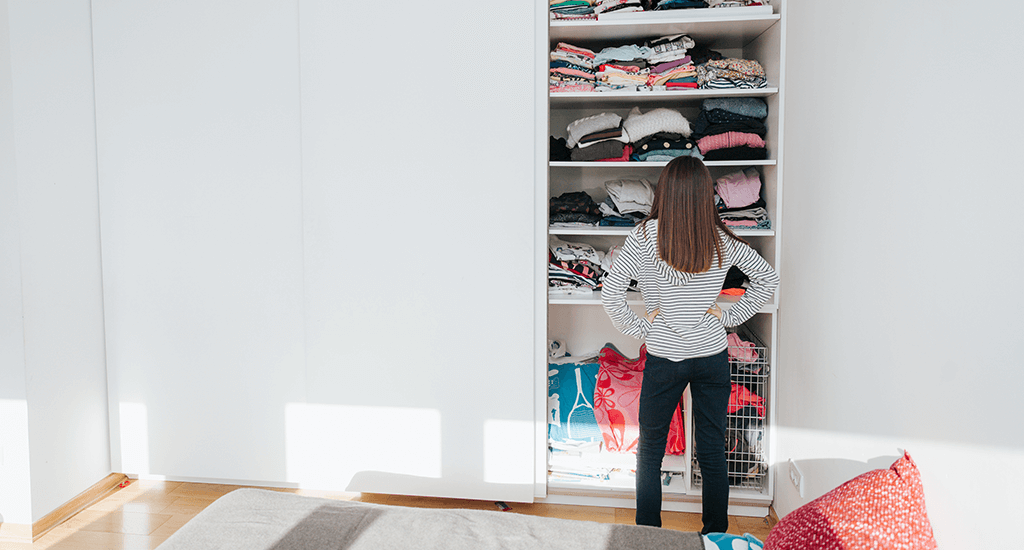declutter

declutter – verbo
decluttering – sostantivo
From the bathroom to the kitchen to the bedroom, this expert advice will show you how to declutter your home and get organized for good.
Don’t wait any longer to tackle your clutter—start with a clean slate with these decluttering tips.
For some, the need to shed possessions is a life-consuming illness—but the cultural embrace of decluttering can make it hard to seek help.
Decluttering guru looks to clean up but says ‘if the bowl you’re using currently sparks joy for you, I don’t encourage replacing it’.
Scommetto che siamo in tanti a pensare di avere troppe cose in casa senza riuscire a sbarazzarcene o quantomeno a ridurne la quantità. Certo, non è un problema nuovo, ma negli ultimi anni nel mondo virtuale e in quello reale è fiorita rapidamente un’industria basata sui consigli, sulle tecniche e i servizi per aiutarci a declutter, ovvero liberarci del superfluo. Non tutti sono sostenitori del decluttering, soprattutto quando diventa fine a se stesso invece che essere un passo essenziale per vivere meglio in un ambiente più efficiente. La guru del riordino Marie Kondo ha lanciato di recente una linea di articoli per la casa, ‘oggetti che trasmettono gioia’ (secondo il metodo della Kondo bisogna tenere solo le cose che ci danno gioia), il che ha scatenato una caterva di polemiche condite da un pizzico di sano cinismo… vuoi vedere che il decluttering è solo consumismo sotto mentite spoglie?
Origini del termine
Il verbo declutter e il sostantivo derivato decluttering sono formati dal verbo e sostantivo clutter e il prefisso de-. Non si tratta di termini recenti: declutter risale agli anni 1950 e decluttering almeno a un decennio prima.
Traduzione di Loredana Riu
declutter – verb
decluttering – noun
From the bathroom to the kitchen to the bedroom, this expert advice will show you how to declutter your home and get organized for good.
Don’t wait any longer to tackle your clutter—start with a clean slate with these decluttering tips.
For some, the need to shed possessions is a life-consuming illness—but the cultural embrace of decluttering can make it hard to seek help.
Decluttering guru looks to clean up but says ‘if the bowl you’re using currently sparks joy for you, I don’t encourage replacing it’.
Many of us feel that we have too many possessions, and struggle to keep on top of them or reduce them significantly. This is not a new problem, but has been the subject of increased focus in recent years. A whole industry has sprung up online and in the real world based around telling people how to declutter, or get rid of stuff they no longer want or need. Not everyone is a fan of decluttering, though, especially when it becomes an end in itself rather than an essential step to living better and more comfortably. Recent news that the Queen of tidying Marie Kondo has launched a range of ‘items that spark joy’ (a key element of her method is that you should only keep things that ‘spark joy’ in you) has led some to suggest that the whole decluttering movement is just another form of consumerism.
Origin
Declutter and the related noun decluttering are formed from the noun and verb clutter, preceded by the prefix de-. They are not all that recent: declutter was first recorded in 1950 while decluttering dates from a decade before that.



